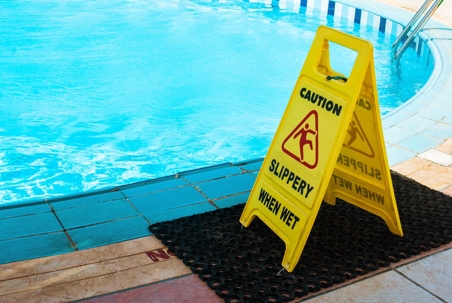Every year, tens of thousands of Americans are seriously hurt while visiting stores, hotels, parking garages, and other private properties. Many don’t realize that not every injury on someone else’s property is a case of premises liability. So what is premises liability and how is it different from an accident?
What is Premises Liability?
Simply put, premises liability is a way for someone to seek justice after suffering a preventable injury on someone else’s property. To be considered “preventable,” the injury must be the result of negligence on the part of the property owner, meaning they knew something was wrong and did not take steps to fix it.
In California, property owners have a “duty of care” to their guests and customers. This means property owners have a responsibility to provide a reasonably safe place for visitors and ensure their building meets state and local safety codes. If they breach their duty of care and someone is injured on their property, it’s more likely to be a case of premises liability than an accident.
The Four Elements of Premises Liability
Proving a premises liability requires that the plaintiff (the accusing) demonstrate four elements before the court. These include:
The Defendant Owns the Property
This is often easy to prove. However, it can get tricky in cases of multiple lawsuits, like when a business is renting a space or in the case of apartment liability.
The Defendant was Negligent in Maintaining the Property
Premises liability can’t be the result of a rare accident. The plaintiff must demonstrate that an injury occurred because the owner failed to ensure the property was safe.
You Sustained an Injury
Negligent property management is not a case of premises liability until someone is injured. To have legal standing in a premises liability case, you must demonstrate that you suffered an injury as a direct result of poor property management.
The Defendant’s Negligence was a Substantial Factor in the Injury
This element requires that a property owner was reasonably aware of the danger and did not take steps to address it. This usually means demonstrating that the source of the injury was reported prior to the accident.
Liability or Accident?
The fourth element is arguably the most important because it separates cases of negligence from unexpected accidents. Because the property owner must be aware of the danger before the injury, it’s important to report potential hazards whenever you notice them.
Reporting issues is win-win. It’s a big help to you as a guest because it makes the property safer and it’s a big help to the property owner because they can provide a safer space by fixing the issue. If the hazard isn’t taken care of and you happen to be injured, your report will act as a record demonstrating that the incident was preventable.
Practical Examples
Because of the four elements, premises liability can feel complex and abstract. To get a better idea of how a premises liability case may play out, look at the examples below:
Example of an Accident
You’re at a fast-food restaurant and go to refill your drink. You drop your cup, spill ice on the floor, slip, and suffer a back injury.
This is an accident, not premises liability. It meets the first and third elements, but the property owner had nothing to do with the injury.
Example of Premises Liability
You’re at a restaurant and see someone spilled ice on the floor. You report it to the staff, but they do nothing. You stand up to leave and trip on the melted ice, suffering a back injury.
This is a case of premises liability. You were injured on someone else’s property because their negligence breached their duty of care.
Example of a Grey Area
Same situation at the restaurant as before. This time, the wait staff mops up the ice and puts a wet floor sign at the scene. Once again, you slip and fall.
Some of the elements are met. You still suffered an injury despite their attempts to fix the problem. This is the kind of case where you really need an experienced premises liability attorney.
Justice for Premises Liability Cases
As you can see, premises liability cases are extremely complex. If you’re injured on someone else’s property through no fault of your own, you should speak to an attorney. An experienced premises liability attorney can evaluate your case and collect the evidence needed to determine whether your injury was an accident or a case of negligence.
If you or someone you love suffered serious injuries due to a property owner’s negligence, we are here for you. If you’d like to schedule a free case consultation with an experienced Newport Beach accident attorney from Manning Law, APC to evaluate your case, please send us an email or call (800) 783-5006.

